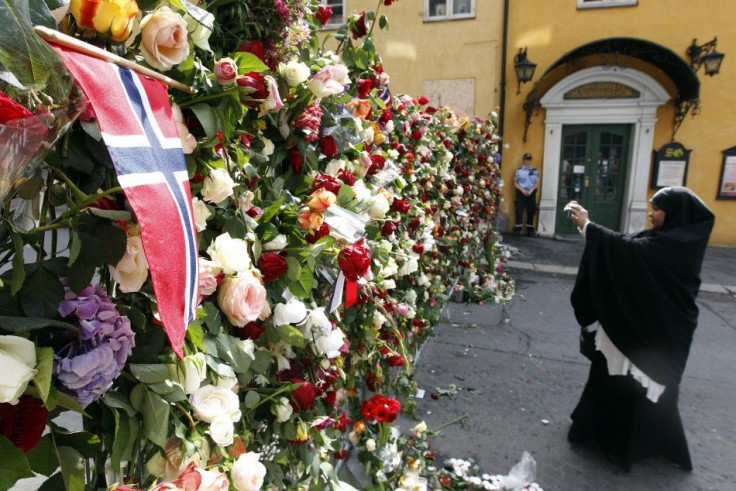Muslims in Norway Contemplate Their Future

Norwegian Muslims find themselves in an extremely uncomfortable and precarious position, a week after an anti-Islamic fanatic murdered dozens of people as a protest against Muslim immigration, and just ahead of the Ramadan and Eid al-Fitr observances.
Muslims in Norway number about 200,000, only about four percent of the country’s population. They come from across the Arab world, as well as Iran, Turkey, Pakistan, Kenya and Somalia.
The imam of an Oslo mosque told The National, an Abu Dhabi-based English language newspaper, he is concerned about safety and security.
"Before, we never thought about it but now, I think everybody thinks about this. Yes, we will discuss security," he said.
"Even the government will now think about not letting so many people gather without the protection of guards, the police or the army."
Moreover, the killings will no doubt raise the profile of Muslims in Norway and their future.
Tore Lindhom, an expert on integration at the University of Oslo's Norwegian Centre for Human Rights, told The National:
"When we wake up from this shock and there is a return to normalcy, there will be a discussion on what is integration and what is it not," he said.
"Do we expect them [Muslims] to do exactly as Norwegians do? Whatever that means. But that is not integration."
Young Muslims are active politically in Norway. Indeed, several of the Labor Party supporters that Anders Behring Breivik murdered on the island of Utoeya were of Muslim origin.
Hadia Tajik, a young female Muslim Labor MP (who was not at Utoeya during the massacre) said the murders represented "an attack on Norway's openness."
She also defended Norway as a nation of openness.
"It is a land of opportunities. It has given me and many other youngsters from immigrant backgrounds so many opportunities and that says much more about the country than the acts of this person," she stated.
Similarly, Mehtab Afsar, general secretary of the Islamic Council of Norway, praised the country.
"Norway is the best country in Europe for Muslims to live in," he said.
However, some Muslim immigrants feel unwelcome in Norway, from long before the Breivik mass murders occurred.
Hassan Ali, a Somali immigrant told BBC that right-wing parties in Norway, like the Progress Party (FrP) exploit fears of immigrants to gain power.
"This mad man [Breivik] has been brain-washed by the far right party [FrP]... and has been following its ideology... and he needed to do something," he said.
"The FrP was attacking the Labor Party because they were bringing Muslims to this country and defending their rights, their work-place and social rights."
Ali added: "Over the last three years we have felt we are not welcome here. Every Sunday the papers are writing only negative things about the Somalis. People are leaving and more will leave as the pressure builds up."
© Copyright IBTimes 2024. All rights reserved.











